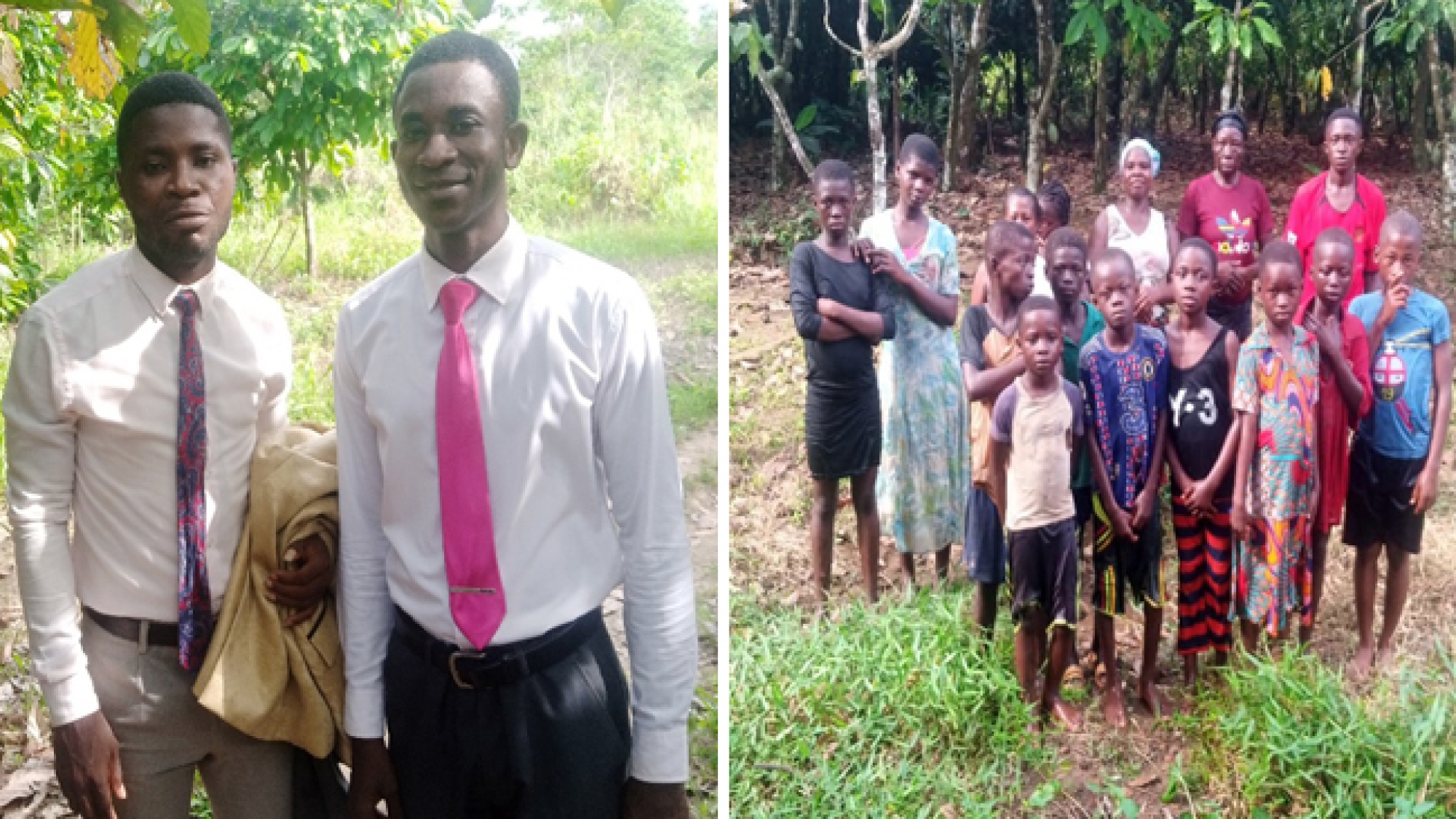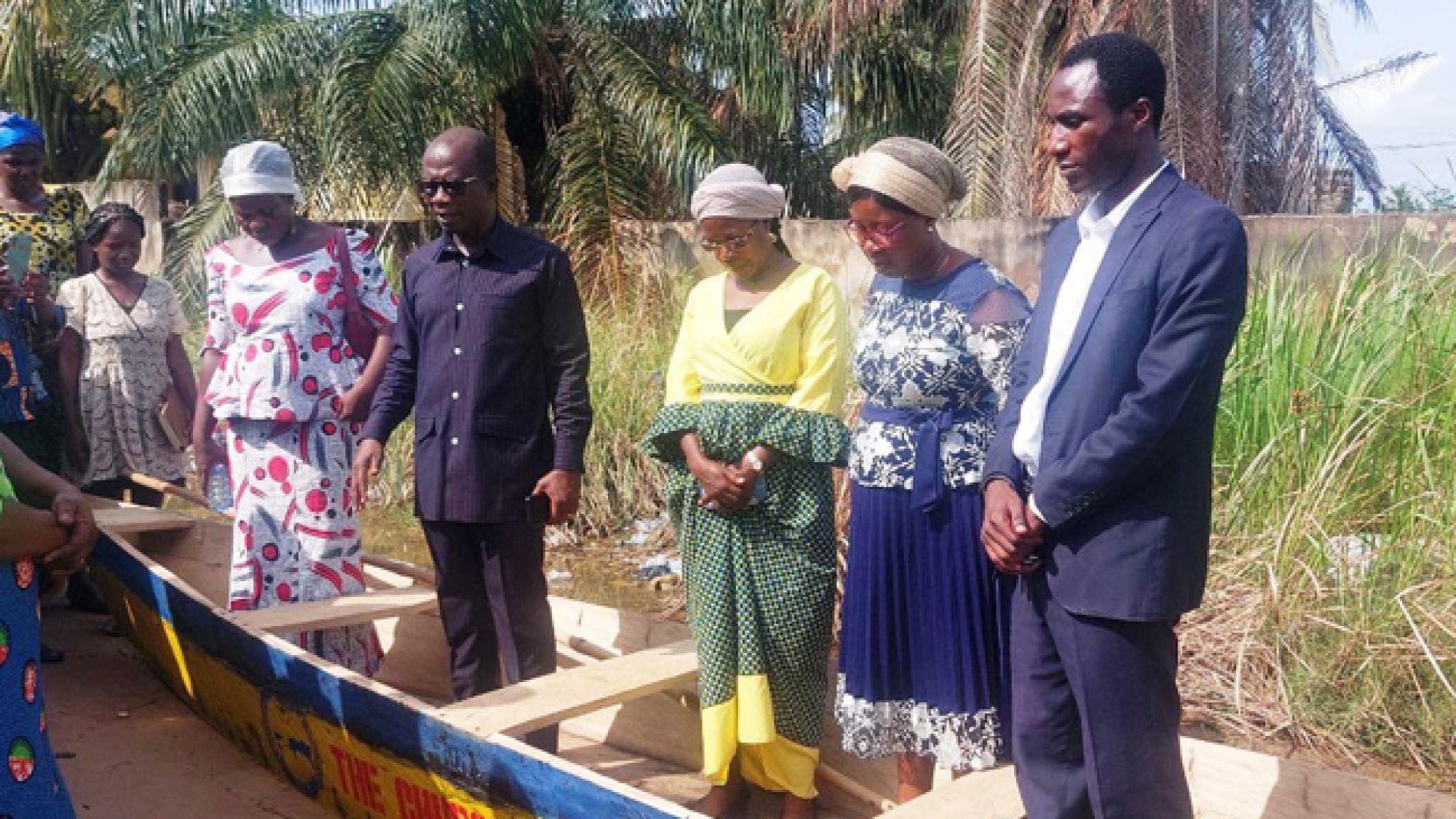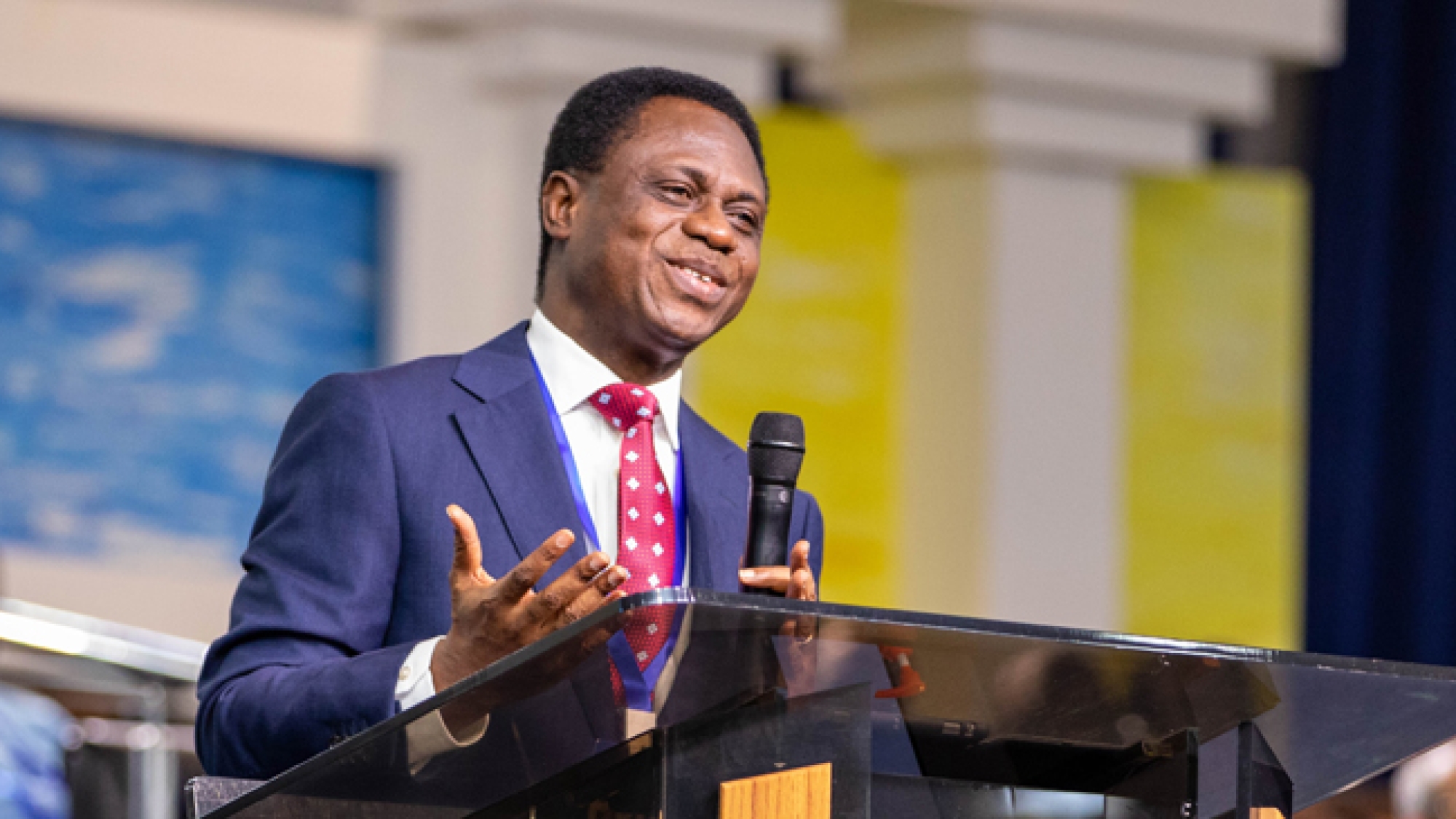INTRODUCTION
Perception serves as the lens through which we interpret and make sense of the world, influencing our thoughts, emotions, and actions. It shapes our understanding of reality, allowing us to navigate and respond to our surroundings.
Recognizing the power of perception underscores the importance of cultivating a positive and purpose-driven mindset to enhance overall performance.
In this write up, our focus will be on exploring how the lens of perception affects both prayer and relationships, extracting valuable lessons from these insights.
THE ‘OR’ PERCEPTION OF PRAYER AND RELATIONSHIPS
The perception of prayer and relationships as either opportunities or responsibilities significantly shapes the way we approach these aspects of our lives.
Regarding prayer, we can approach it from the standpoint of privilege or responsibility, either way affects how we pray and the same applies to relationship, rightly so because prayer is an important tool in our relationship with God.
For many, viewing prayer as an opportunity suggests a perspective of personal connection, intimacy with God and the potential for positive change. In this light, prayer becomes a chance to deepen one’s spirituality, seek guidance, and experience a meaningful connection with God. Approaching prayer as an opportunity often leads to a more open, hopeful, and proactive engagement with God.
Likewise, viewing relationships as opportunities suggests an openness to growth, learning, and shared experiences. People who embrace relationships as opportunities often approach them with a sense of interest, seeing each connection as a chance for mutual benefit, personal development, and joy.
Conversely, perceiving prayer as a responsibility introduces a sense of duty, obligation, and commitment. Those who view prayer in this manner may see it as a necessary and disciplined part of their routine, emphasizing a commitment to their faith or spiritual beliefs. This perspective can instill a sense of accountability and a structured approach to prayer, where individuals prioritize it as an essential aspect of their daily or weekly responsibilities. However, this may lead to a more mechanical and uninspired rendezvous, potentially diminishing the depth of spiritual connection and personal fulfillment that prayer can offer.
Similarly, perceiving our relationship as a responsibility emphasizes a sense of obligation that comes with interpersonal connections. It may lead to a sense of duty rather than genuine connection, potentially resulting in strained interactions and emotional distance. This perspective might also contribute to feelings of burden, as individuals may feel weighed down by the perceived duties of maintaining the relationship rather than appreciating it as a valuable and enriching part of their lives. Additionally, the obligation-centric approach may hinder the spontaneity and joy that often accompany relationships seen as privileges rather than duties.
Those who approach relationships from a sense of responsibility may try to prioritize the care, support, and maintenance of these connections, viewing them as integral components of a fulfilling and purposeful life, but are usually not able to sustain them in the long run.
SEEING THROUGH THE LENS OF PRIVILEGE
In the initial phase of our Christian journey with God, characterized by the excitement surrounding His immense love for us and His desire to be an integral part of our daily lives, our approach to prayer is lit by the perception of privilege. We consider it a rare and extraordinary opportunity bestowed upon us by God, enabling us to engage in a profound dialogue with Him, both expressing our thoughts and receiving guidance through prayer.
This phase of our relationship with God through prayer has the potential to develop to the extent that we assign it a high priority above all other considerations. This, indeed, aligns with what God rightfully desires – that we acknowledge Him in all we do. Acknowledging Him highlights the centrality of God’s presence in every facet of our existence.
During this phase, our earnest desire is to maintain a continuous connection with God. We express gratitude for His benevolence, engage in discussions about our plans, and earnestly seek His guidance throughout the intricate journey of life, among other aspects. This period is marked by a genuine enthusiasm to commune with our Maker, recognizing prayer as a unique and privileged avenue for fostering a deeper relationship with the Almighty God.
In the initial stages of a relationship, there is an inherent excitement about the love shared with our partner, prompting open discussions on a myriad of topics, including our future plans. During this phase, it is customary to seek our partner’s input, valuing and seriously considering their suggestions as integral components of our future plans.
Additionally, in our physical intimate relationships, there comes a juncture where we prioritize the presence and perspectives of our partners. Typically, we eagerly anticipate hearing from them as the first thing in the morning and the last thing in the evening. There are even occasions when we experience a sense of loneliness if we haven’t heard from them for an extended period.
KEEPING THE FIRE UP & VIBE ON
In our prayer lives, we cherish the continual chance to strengthen our faith through an active prayer routine, viewing it as a rare privilege. With sincere dedication, we approach each instance of prayer with reverence, recognizing the gravity of the bestowed privilege. Committed to fortifying our faith, we follow scriptural guidance by praying in the spirit on all occasions, utilizing various forms of prayer to deepen our spiritual connection. We keep firing up!
Also, when we perceive our relationship as a privilege, we are better positioned to wholeheartedly invest in that connection. We cherish the moments spent with our partners and actively seek ways to cultivate a vibrant and thriving relationship. Thoughtfully, we contemplate ways to add excitement to the interests we share with our partners.
We hold in high regard the sacrifices made by our partners and ensure they feel both loved and appreciated. This perspective encourages us to approach the relationship with a sense of gratitude, prompting us to contribute our utmost to its success and fulfillment.
THE OTHER SIDE OF THE LENS; RESPONSIBILITY!
The other side of the lens of perception is responsibility.
When we view prayer as a call to duty or a responsibility, it also affects how we approach it. We feel obliged to pray and guilty when we don’t do it.
This perspective often leads us to believe that negative consequences may befall us if we neglect prayer and makes our prayer life driven by fear and guilt. But the scripture in 2 Timothy 1:7 states that “For God hath not given us the spirit of fear; but of power, and of love, and of a sound mind.”
When prayer is seen primarily as a response to fear, the focus shifts towards seeking divine intervention to avert potential harm or misfortune. This fear-driven approach is evident in the tendency to ask God for specific requests and blessings without expressing a genuine interest in fostering intimacy with Him.
This transactional mindset can hinder the development of a genuine and intimate connection with God. Instead of viewing prayer as an opportunity for communion and understanding, it becomes a means of appeasement or a way to secure protection and break ancestral curses.
When it comes to our relationship, a sharp cooling off curve emerges that is driven by our perception of relationship as a responsibility. As we begin to perceive our actions within relationships as responsibilities, a subtle but profound shift occurs, siphoning away the inherent intimacy and vibe that comes with them. It makes the relationship rigid and boring, stripping away the spontaneity and excitement that typically characterize vibrant connections.
We may find ourselves feeling a sense of guilt for failing to engage in certain behaviors, such as checking in on each other or being present for one another. Moreover, actions like communication, demonstrating love and aiding each other’s growth are often perceived as responsibilities. This perspective leads us to mentally position ourselves to anticipate appreciation when fulfilling these duties. Consequently, we tend to allocate roles and elevate the expectation ladder within our relationships. This transactional approach creates an environment where we expect reciprocal actions from the other person based on our own contributions.
THE TOUGH BEND & BREAKING UP
When this pattern persists for an extended period, we find ourselves relenting in our prayer lives. We struggle to sustain the practice, often attributing our lapses to hectic schedules and other trivial excuses. We inadvertently distance ourselves from this invaluable opportunity to engage in meaningful conversation with our creator and ultimate source.
Within the context of relationships, the unfortunate yet inevitable consequence of its stiffness and rigidity is a breakup. No relationship can be sustained on the foundation of such perception. There is an absence of vitality, connection, and a genuine vibe within the relationship. Conversations are direct and lack intimacy. Each partner anticipates the other to initiate action.
The relationship may turn into a fault-finding avenue wherein each partner actively seeks out reasons to assign blame to the other.
THE HARD COMEBACK
At times, though not consistently, individuals can acknowledge and embrace their shortcomings, akin to the prodigal son who came to a profound realization of his errors.
Upon recognizing our errors and the factors that led us astray from our most cherished prayer experiences with God, we embark on a pathway to restoration. God, ever-forgiving and welcoming, stands prepared to receive us back into His embrace, mirroring the compassion demonstrated by the father in the parable of the prodigal son.
We can rekindle our prayer life and delve even deeper into our connection with God.
Regrettably, the likelihood of experiencing comebacks in our physical intimate relationships diminishes considerably.
Individuals are not divine; human beings are constrained by both time and capability. Consequently, people often linger on the past, creating a challenge in accepting someone they had previously separated from, even when the other partner acknowledges their mistakes and expresses a genuine willingness to rectify them.
Simply put, people move on easily.
Not everyone possesses the ability to go back to their former partners even when they realize their wrongs.
This makes it necessary for us to be more intentional about our intimate relationship and develop the right perception for them.
We should love deeply and cultivate good character traits that make it easier for others to love us.
In a relationship, you don’t do what you want, because everything you do affects your partner and your relationship with them, therefore, it is pertinent to conscientiously factor in your partner’s perspective when making decisions.
CONCLUSION
In conclusion, our perception acts as a powerful lens that shapes our approach to prayer and relationships, influencing the dynamics of these essential aspects of our lives. Whether viewed through the lens of privilege or responsibility, the impact on our experiences is profound.
When we see prayer as a privilege, we embrace it as a rare opportunity to connect intimately with God, fostering a deep and meaningful relationship. Similarly, relationships seen as privileges are cherished, and efforts are made to cultivate vibrancy and joy, contributing to mutual growth and fulfillment.
On the other hand, perceiving prayer and relationships as responsibilities introduces a sense of duty that may lead to a transactional approach, driven by fear, guilt and expectations. This mindset can hinder the genuine connection and spontaneity that make prayer and relationships fulfilling.
The consequences of these perceptions are plain – a waning prayer life and the potential breakdown of relationships. The realization of our errors may lead to a comeback in our prayer life, but in relationships, the chance for reconciliation diminishes considerably.
Ultimately, the key lies in cultivating a positive perspective of prayer and our relationship, understanding the significance of our perception in shaping the quality of our prayer life and relationships. By doing so, we can keep the fire alive in our prayer experiences and maintain vibrant connections in our relationships, navigating the delicate balance between privilege and responsibility with wisdom and intentionality.
Thank you.
Written by James A. Brown (District Youth Organizer, New Mamprobi)














